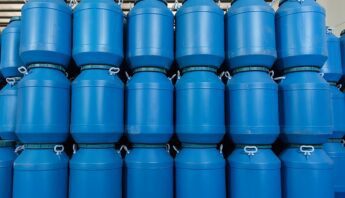For Immediate Release: June 30, 2014
Contact: Paul Towers, PAN, 916-216-1082, ptowers@panna.org
Opposition grows to Dow’s new GE crops
Almost half-a-million raise concerns with EPA over Enlist Duo pesticide product
Today, more than 475,000 concerned individuals submitted comments to the Environmental Protection Agency urging decisionmakers to keep Dow’s 2,4-D-resistant crops off the market. While USDA is also reviewing these new genetically engineered (GE) seeds, it falls to EPA to determine whether or not the “new use” of 2,4-D in this application — packaged for use on herbicide-resistant seeds known as “Enlist” — poses harm to human health and the environment.
2,4-D is an antiquated, dangerous chemical. It is a reproductive toxicant, suspected endocrine disruptor and possible carcinogen. Additionally, scientists warn that widespread planting of Enlist corn could trigger as much as a 25-fold increase in use of 2,4-D on corn, from an estimated 4.2 million lbs. at present to over 100 million lbs. by 2019.
Recognizing a potential public health disaster looming on the horizon, 70 physicians, nurses and other health professionals have already urged EPA to reject Dow’s application for new uses of 2,4-D on GE corn.
Speaking to the possibility of Dow’s new seeds being approved, Linda Wells, spokesperson for Pesticide Action Network, said:
“Genetically engineered crops like Monsanto’s RoundUp Ready line have repeatedly failed to fulfill on their promises of increased yields and reduced pesticide use — instead leading to dramatic increase in herbicide application and the development of ‘superweeds.’ Still, EPA and USDA are considering allowing yet another herbicide-resistant seed line on the market: Dow’s 2,4-D-resistant crops known as ‘Enlist.’ And this time the fallout will be even worse. 2,4-D is more toxic to human health; it’s known to drift off target plants to harm neighboring fields and expose nearby communities. And as we saw with RoundUp Ready crops, widespread use of 2,4-D will likely result in even more superweeds.
There are more herbicide-resistant crops in the queue awaiting approval behind Dow’s 2,4-D seed line, but this cycle has to stop. It’s time for decisionmakers to help farmers get off the pesticide treadmill and provide tools that support healthy communities and strong farming economies — rather than supporting corporations like Dow and Monsanto looking to expand marketshare.”
George Naylor, soybean farmer in Iowa and member of the National Family Farmer Coalition shared the following:
“Herbicide-resistant corn and soybeans (used largely for animal feed and biofuels) have already decimated biodiversity in pristine landscapes inhabited by wildlife and subsistence farmers. The release of Dow's 2,4-D crops will speed up that destruction and lead to widespread health and environmental consequences.”







